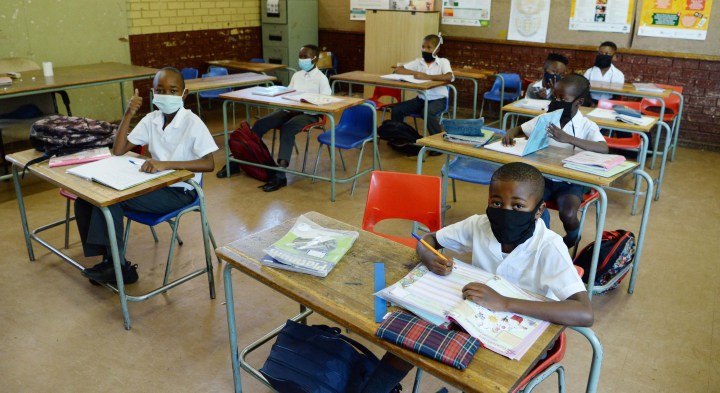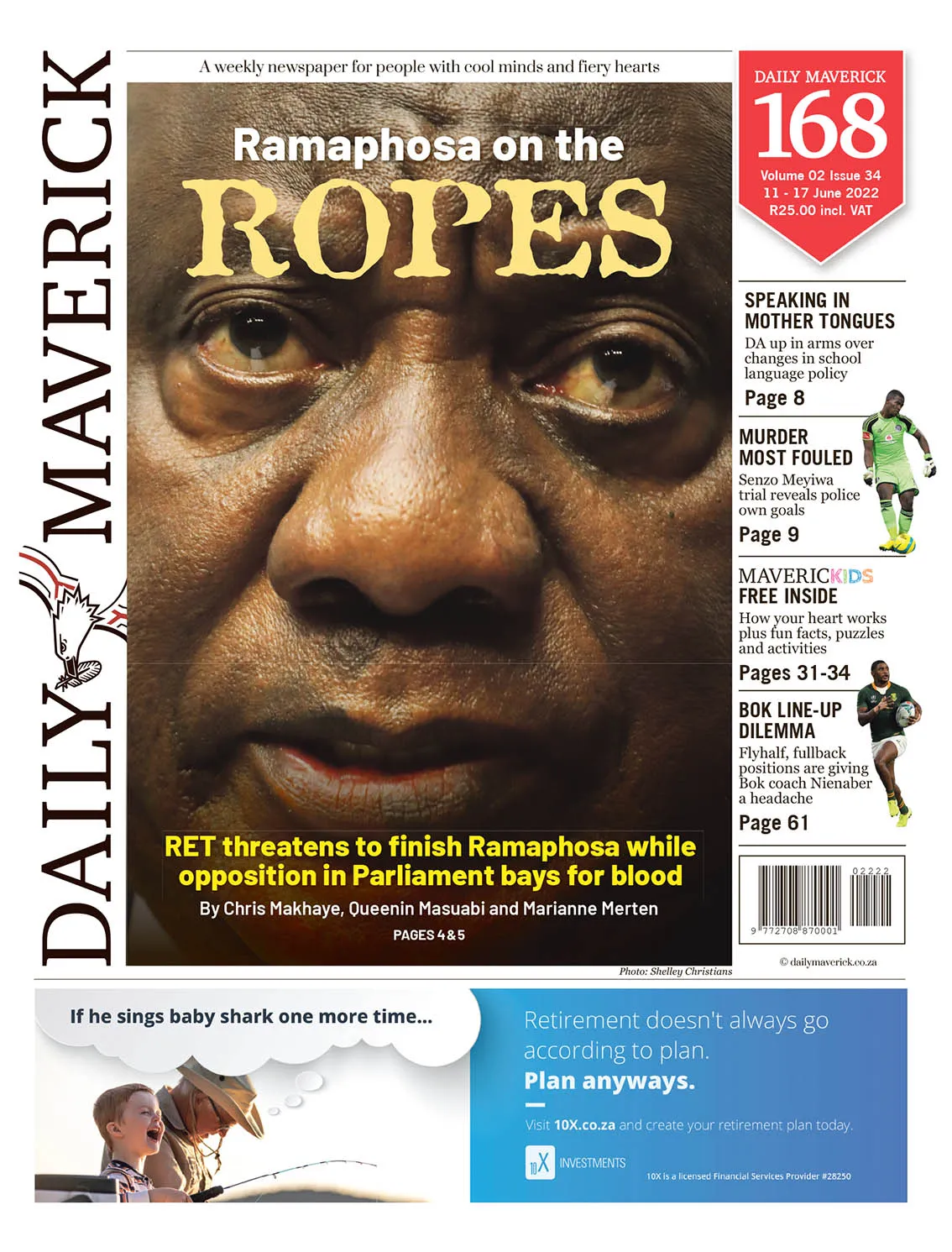THE FUTURE IS MULTILINGUAL
New language policies at schools get a tongue-lashing over costs, feasibility and the fate of Afrikaans

A review of legislation governing basic education will change the way language policies are navigated at schools. A draft law pushing for multilingualism has not been universally welcomed.
Amendments to two education acts of Parliament will change how public schools’ language policies are set.
The Basic Education Law Amendment (Bela) bill seeks to amend the 1996 South African Schools Act (SASA) and the 1998 Employment of Educators Act (EEA).
The Bela bill has been five years in the making, with a draft having been introduced in Parliament in 2017.
It intends to reconcile SASA and EEA with developments in the education landscape and improve the quality of basic education.
While the bill is a review of all legislation governing basic education, it has drawn scrutiny over consequences for language policies and the control that the government will have over them. Currently control lies with school governing bodies.
Unlike higher education, which has had two reviews and in 2020 released its Language Policy Framework for Public Higher Education, this is the first time the Department of Basic Education is reviewing language policy in schools since the 1997 Language in Education policy.
Catching up with higher education, the Bela bill’s clauses push for a multilingual approach, with public schools having more than one language of instruction.
What are the changes?
If the Bela bill is approved, it will give provincial department heads more oversight of language policies developed by school governing bodies.
Governing bodies will need to submit language policies for approval.
Read in Daily Maverick: “Villiersdorp parents plead for isiXhosa-medium school to be built for weary learners”
The bill will grant final authority on language policies to the provincial heads, with any appeals handled by members of the provincial executive council.
Although the bill does mandate provincial heads to consider the needs of the broader communities when considering the language policies, its implications are contested.
One such implication is that single-medium Afrikaans schools are likely to be instructed to become dual- or parallel-medium.
According to DA spokesperson Liza Albrecht, the bill’s implications are “an attack on the right of [the] school governing body to choose to educate learners in Afrikaans”.
It was “directly at odds with Basic Education Minister Angie Motshekga’s stated desire to expand mother-tongue education in other indigenous languages”.
A DA petition against the bill has gathered about 12,000 signatures.
Objections to the draft law were “false, misleading and actually untrue”, said Department of Basic Education spokesperson Elijah Mhlanga.
“We look at all areas of weaknesses and gaps since these laws have been implemented,” he said, adding that the bill would not satisfy everyone.
“The purpose [of the bill] is to strengthen governance and make improvements where the system has been found wanting based on observations and criticism from various stakeholders,” said Mhlanga.
Civil organisations and school governing bodies have not rejected the bill entirely, but have raised red flags over financial costs and feasibility.
According to Anthea Cereseto, CEO of the Governing Body Foundation, finding enough qualified teachers will be difficult. The foundation represents 760 public schools.
“There are teachers in the system in the schools who would not be able to teach non-language subjects in the additionally adopted languages. This would mean employing double staff in some cases,” she said. “Classes would be segregated according to language of learning and teaching groups. This would not help with social cohesion.”
The foundation supported “most” of the bill, but members were concerned about state control.
“The Department of Basic Education and the [provincial education departments] may pass laws to give effect to constitutional rights but must not extend their powers,” she said. “When there is too much prescription and limiting of school governing body rights, parents leave the public education system, usually weakening the system as they take their school fees somewhere else.”
Who should control policies?
Carolyn McKinney, a professor of language education at the University of Cape Town, said giving school governing bodies full responsibility for language policies has not necessarily been a good thing.
“It has in many cases prevented the inclusion of African languages as subjects at the level of English and Afrikaans in historically white schools,” she said. “It has not fostered innovation in bilingual education or [the] use of African languages as languages of learning and teaching beyond Grade 4.”
McKinney said she had sympathy for Afrikaans-speaking parents but that the language would not be replaced entirely.
The change would ensure African children who don’t speak Afrikaans would not be excluded from schools, she said.
McKinney is a member of Bua-lit, a language and literacy collective promoting multilingual education to help children develop home-language and English proficiency.
Language policies must give opportunities to learn African languages as well as English, but this did mean compromise. “Language policies should support the child’s social, cultural and cognitive development as well as build social cohesion.”
Read in Daily Maverick: “Multilingualism is ‘expanded and strengthened’ in revised Stellenbosch University language policy”
Cereseto said that while other countries with multiple languages adopt a common language of learning and teaching, “they are able to maintain the home language throughout schooling. This is not possible [in our context].
“In an urban school there may be multiple language groups. Which languages would the school support through to Grade 12?” Cereseto asked. “Ultimately, small language groups would still not be able to realise their rights, as dominant languages would prevail.”
Dr Xolisa Guzula, convener of New Generation of Academic Professionals in Multilingual and Multiliteracies Education, challenged this thinking.
Guzula said African languages not being used in schools led to “huge erasure of African languages by parents who have been ill-advised so their children can assimilate to the schools’ English and Afrikaans language policies”. Such schools only “employ teachers who can speak these languages rather than teachers who speak African languages and English”.
Submissions are currently being made to parliament’s portfolio committee, on Basic Education, with a deadline of 15 June 2022, DM168
This story first appeared in our weekly Daily Maverick 168 newspaper, which is available countrywide for R25.



















 Become an Insider
Become an Insider
When you have 11 official languages then you have no option but to compromise based on practicalties
I am Afrikaans, but please : we have to get to a stage where English (despite being 4th or 5th in home language count) is one of each school’s language policy. Like it or not English is the most universal common language for purpose of further study, jobs and just communicating among all South Africans. We might even end up with spokespersons that are coherent without sub titles.